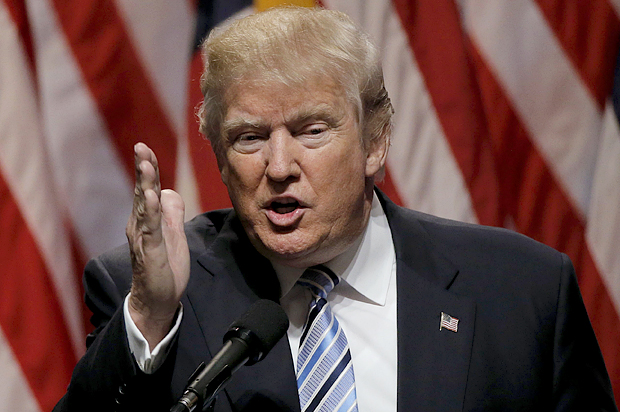Humanity is doomed. Western civilization is in grave danger. The world is on the brink of destruction. These depressing and hyperbolic thoughts were likely running through many minds on Sunday after yet another senseless act of violence left three police officers dead in Baton Rouge, just three days after a terrorist plowed down more than 200 civilians with a truck on a busy street in Nice, France, killing 84 and wounding many more.
“If we don’t come together and end this madness, surely we will perish as a people,” remarked the East Baton Rouge Sheriff Sid Gautreaux after Sunday’s violence.
Sadly, this kind of homicidal violence has become unsurprising and even predictable to anyone who even casually pays attention to today’s 24/7 news cycle, leaving many people numb and apathetic (especially when it is gun violence). Even a slow news week can have an abundance of violence and tragedy in the age of cable news, social media and smartphones — whether it’s an Islamic terrorist shooting up a gay nightclub, a police officer killing an unarmed black man, or a lone gunman massacring police officers at a peaceful BLM protest. With smartphones there to capture it all and a media eager to sensationalize for ratings, violence seems more prevalent and real today than ever before.
And this may be affecting how people think about the world. According to various studies, for example, people of all political persuasions tend to become more conservative (or authoritarian) when they feel threatened, and more liberal when they feel safe and secure. The 2016 election has shown us that fear can be an extremely powerful motivator, and it probably secured Donald Trump the Republican nomination after a year of fear-mongering about “
Hoping to build on his success last week, Trump proudly designated himself the “law and order” candidate (a historical dog-whistle) in a speech on crime, while declaring that crime in America is “out of control” and rising.
He continued his rhetoric after Sunday’s tragedy in Baton Rouge:
President Obama just had a news conference, but he doesn’t have a clue. Our country is a divided crime scene, and it will only get worse!
— Donald J. Trump (@realDonaldTrump) July 17, 2016
Of course, like his many other fear-provoking claims, this one is completely false (ruled “pants on fire” by PolitiFact). Crime is not “out of control,” and has actually dropped dramatically over the past three decades (for a multitude of reasons — from the legalization of abortion to the elimination of lead from gasoline to the aging population).
The same is true for violence in general, which has plunged worldwide over the past century. The gruesome and shocking images/videos that spread through social media along with a news media that thrives off of sensationalism may suggest the world is more dangerous and chaotic than ever before, but reality is much more heartening.
As Harvard professor and evolutionary psychologist Steven Pinker documents in his 2009 book, “The Better Angels of Our Nature“, humanity has become steadily less violent with modernity (even when enormously destructive wars like WWII are taken into account). The chief causes of this decline, according to Pinker, are the modern state and its “monopoly on the legitimate use of force,” economic industrialization and the expansion of commerce, and the soaring literacy rates that followed Gutenberg’s invention of the printing press. “The growth of writing and literacy strikes me as the best candidate for an exogenous change that helped set off the Humanitarian Revolution,” writes Pinker (In a lecture on his book, he posits that “as people consume fiction, drama, history, and journalism, they start to inhabit the minds of people unlike themselves, which conceivably could expand their empathy and decrease their taste for cruelty”).
Six years after publishing his book, the latest data on violence continue to support his thesis. Though Civil Wars around the world increased from just 4 in 2007 to 11 in 2014 (8 of which involved radical Islamist forces) and the war in Syria led to a slight increase in war deaths (1.4 per 100,000 people per year, compared to 300 per 100,000 during WWII), virtually every other rate of violence had continued to decrease by 2014, including mass killings and homicides, which have fallen to historic lows.
Now, none of this means that a calamitous event can’t happen tomorrow and trigger World War 3 — like the election of Donald Trump, for example — or that tragic and immoral acts of violence aren’t committed on a daily basis; they most certainly are (and many of them come from state power). But in the United States, you’re more likely to be fatally crushed by furniture than to die in a terrorist attack. The point is that irrational fear and panic can lead to destructive and counterproductive behavior that ultimately exacerbates danger and instability (destabilizing the Middle East with the invasion of Iraq, for instance, didn’t make the world a safer place).
As Amanda Taub reported in Vox a few months back, researchers have found that the single best predictor of support for Donald Trump is having an authoritarian personality (which researchers determine by asking questions on parenting). And those with authoritarian personalities tend to fear outside threats like ISIS and Iran much more than those with non-authoritarian personalities. Researchers also found that a certain segment of non-authoritarian voters “who are sufficiently frightened of physical threats such as terrorism could essentially be scared into acting like authoritarians.”
In other words, Trump’s key to the White House is to scare the hell out of the populace and promote himself as the strongman who will restore safety and stability to the world (of course, he would undoubtedly do the opposite). Though most commentators have all but declared Hillary Clinton the next president, a few more tragedies before November could make it a lot closer than anyone has anticipated.

